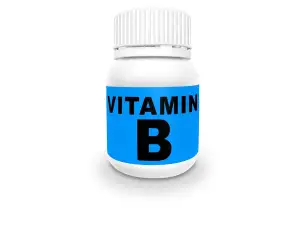Revitalize Your Health with a Refreshing Juice Diet: Discover the Benefits of Juicing

Are you looking for a way to revitalize your health and embrace a healthier lifestyle? Look no further than the refreshing world of juice diets. A juice diet involves consuming only freshly squeezed juices from fruits and vegetables for a certain period of time, typically ranging from a few days to a few weeks.
Juice diets have gained popularity in recent years due to their numerous health benefits. Not only do they provide essential vitamins and minerals, but they also help detoxify the body and promote weight loss. With an array of delicious flavors and combinations, juice diets are a delightful way to nourish your body and boost your overall well-being.
In this article, we will explore the benefits of a juice diet, discuss different types of juices you can include in your diet, provide tips on how to start a juice diet, offer advice for a successful journey, highlight potential risks and precautions, address frequently asked questions, and ultimately inspire you to embrace a healthy lifestyle through the power of juice diets. So grab your juicer and get ready to embark on a rejuvenating journey towards better health!
Benefits of a Juice Diet
A juice diet offers numerous benefits for your health and overall well-being. Firstly, it provides a concentrated dose of essential vitamins, minerals, and antioxidants that are easily absorbed by the body. These nutrients help to boost your immune system, improve digestion, and promote healthy skin.
Secondly, a juice diet can aid in weight loss. By replacing high-calorie meals with nutrient-rich juices, you can reduce your calorie intake while still satisfying your hunger. The natural sugars in fruits provide energy without the added calories from fats and proteins.
Additionally, juicing allows for better hydration as fruits and vegetables have high water content. Proper hydration is vital for maintaining optimal bodily functions such as regulating body temperature and promoting healthy circulation.
Moreover, a juice diet can help detoxify your body by flushing out toxins and waste products. The abundance of fiber in fruits and vegetables aids in cleansing the digestive system and promoting regular bowel movements.
Furthermore, consuming a variety of juices can improve your mental clarity and increase energy levels throughout the day. The nutrients present in fresh juices nourish the brain cells, enhancing cognitive function and reducing fatigue.
Lastly, incorporating a juice diet into your lifestyle can lead to improved overall health. It may lower the risk of chronic diseases such as heart disease, diabetes, and certain types of cancer due to the high levels of antioxidants present in fruits and vegetables.
In conclusion, a juice diet offers an array of benefits including increased nutrient intake, weight loss support, improved hydration, detoxification, enhanced mental clarity and energy levels, as well as reduced risk of chronic diseases. By embracing this healthy lifestyle choice, you can revitalize your health from within.
Types of Juices for a Juice Diet
When it comes to a juice diet, there are endless possibilities for the types of juices you can incorporate into your daily routine. Here are some popular options:
1. Green juices: Packed with leafy greens like spinach, kale, and cucumber, these juices are rich in vitamins, minerals, and antioxidants.
2. Citrus juices: Made from fruits like oranges, lemons, and grapefruits, these juices are refreshing and high in vitamin C.
3. Beetroot juice: Known for its vibrant color and earthy flavor, beetroot juice is a great source of iron and folate.
4. Carrot juice: Sweet and satisfying, carrot juice is loaded with beta-carotene, which supports healthy skin and eyesight.
5. Berry juices: Blueberries, strawberries, raspberries - these delicious fruits make for antioxidant-rich juices that boost immunity.
6. Watermelon juice: Hydrating and naturally sweet, watermelon juice is perfect for hot summer days.
Remember to experiment with different combinations to find the flavors that suit your taste buds best. Just make sure to use fresh ingredients for maximum nutritional benefits!
How to Start a Juice Diet
To start a juice diet, it is important to plan and prepare ahead. Here are some steps to get you started:
1. Set your goals: Determine why you want to embark on a juice diet. Whether it's for weight loss, detoxification, or simply improving your overall health, having a clear goal will help you stay motivated.
2. Choose the right juicer: Invest in a good quality juicer that can extract maximum nutrients from fruits and vegetables. Cold-pressed juicers are recommended as they retain more vitamins and enzymes.
3. Stock up on fresh produce: Purchase a variety of fruits and vegetables that you enjoy. Aim for organic options whenever possible to minimize exposure to pesticides.
4. Start with simple recipes: Begin by trying out basic juice recipes using common ingredients like apples, carrots, spinach, and cucumbers. As you become more comfortable, experiment with different combinations.
5. Incorporate other liquids: In addition to juices, include herbal teas and plenty of water in your diet to stay hydrated throughout the day.
6. Gradually transition: Instead of jumping into a full juice cleanse right away, ease into it by replacing one meal with a juice initially and gradually increase the number of meals replaced over time.
7. Listen to your body: Pay attention to how your body responds to the juice diet. If you experience any discomfort or adverse effects, consult a healthcare professional.
Remember, consistency is key when starting a juice diet. Stick to it for at least a few days or as advised by professionals to experience its benefits fully.
Tips for a Successful Juice Diet
1. Choose fresh, organic fruits and vegetables: Opt for locally sourced produce to ensure maximum nutrients and minimize exposure to pesticides.
2. Experiment with different flavors: Keep your juice diet interesting by trying new combinations of fruits and vegetables. This will prevent boredom and help you stick to the diet.
3. Stay hydrated: In addition to consuming juices, remember to drink plenty of water throughout the day to stay properly hydrated.
4. Listen to your body: Pay attention to how your body feels during the juice diet. If you experience any discomfort or unusual symptoms, consult a healthcare professional.
5. Ease into the diet: Start by replacing one meal a day with a juice and gradually increase the number of meals replaced as your body adjusts.
6. Incorporate fiber-rich ingredients: Add ingredients like chia seeds or flaxseeds to your juices to increase fiber intake and promote healthy digestion.
7. Practice portion control: While juices are nutritious, they can still be high in calories if consumed excessively. Be mindful of portion sizes and avoid overindulging.
8. Support your detoxification process: Aid your body's natural detoxification process by avoiding processed foods, caffeine, alcohol, and sugary beverages while on the juice diet.
9. Seek professional guidance if needed: If you have any underlying health conditions or concerns, it's best to consult with a healthcare professional or nutritionist before starting a juice diet.
10. Maintain a balanced lifestyle post-diet: After completing a juice diet, gradually reintroduce solid foods while maintaining a balanced and nutritious eating plan for long-term health benefits.
Potential Risks and Precautions of a Juice Diet
While a juice diet can offer numerous health benefits, it is important to be aware of the potential risks and take necessary precautions. Here are some key points to consider:
1. Nutrient Deficiencies: Juicing eliminates the fiber content from fruits and vegetables, which can lead to a deficiency in essential nutrients like protein, healthy fats, and certain vitamins and minerals. It is crucial to ensure that your juice diet includes a variety of fruits, vegetables, and supplementary sources of protein and healthy fats.
2. Blood Sugar Imbalances: Juices are high in natural sugars, which can cause rapid spikes in blood sugar levels. This can be problematic for individuals with diabetes or those prone to blood sugar imbalances. It is advisable to consult with a healthcare professional before starting a juice diet if you have any underlying health conditions.
3. Insufficient Caloric Intake: Juicing often results in a significant reduction in calorie intake due to the limited variety of foods consumed. This may lead to feelings of fatigue, weakness, and difficulty concentrating. It is important to listen to your body's needs and ensure you are consuming enough calories through nutrient-dense juices and additional sources if required.
4. Digestive Issues: Some individuals may experience digestive discomfort such as bloating or diarrhea when transitioning to a juice diet due to the sudden increase in fiber intake or changes in gut bacteria composition. Gradually introducing juices into your diet can help minimize these issues.
5. Lack of Satiety: Juices lack the satiety factor that whole foods provide due to their liquid form. This may lead to increased hunger cravings and difficulty sticking with the juice diet long-term. Consider incorporating small amounts of whole foods or adding ingredients like avocado or nut butter into your juices for added satiety.
Always remember that moderation is key when embarking on any dietary change, including a juice diet. It is advisable to consult with a healthcare professional or registered dietitian before starting a juice diet, especially if you have any underlying health conditions or are on medication.
Frequently Asked Questions about Juice Diets
1. Are juice diets suitable for everyone?
Juice diets can be beneficial for most people, but it's important to consult with a healthcare professional before starting one, especially if you have any underlying health conditions or are on medication.
2. Can I consume solid food while on a juice diet?
Most juice diets recommend consuming only juices and eliminating solid food. However, some variations allow for light snacks or small meals. It's best to follow the guidelines of the specific juice diet plan you choose.
3. How long should I follow a juice diet?
The duration of a juice diet varies depending on individual goals and preferences. Some people opt for short-term cleanses lasting a few days, while others may continue for several weeks. It's essential to listen to your body and make sure you're getting adequate nutrition.
4. Will I lose weight on a juice diet?
Many people experience weight loss during a juice diet due to reduced calorie intake. However, the amount of weight loss varies from person to person. Remember that weight loss should not be the sole focus; improving overall health is equally important.
5. Can I exercise while on a juice diet?
Light exercise such as walking or yoga is generally safe during a juice diet. However, intense workouts may not be recommended as your energy levels might be lower than usual due to reduced caloric intake.
6. What should I do after completing a juice diet?
After completing a juice diet, it's crucial to transition back to solid foods gradually. Start by incorporating small amounts of fruits, vegetables, and whole grains into your meals while continuing to prioritize fresh juices.
Remember that these answers are general guidelines, and it's always best to seek personalized advice from a healthcare professional before embarking on any dietary changes or restrictions
In conclusion, embracing a healthy lifestyle with juice diets can have numerous benefits for your overall well-being. By incorporating fresh and nutritious juices into your diet, you can revitalize your health and boost your energy levels. Juice diets provide a convenient way to consume a wide variety of fruits and vegetables, ensuring that you receive essential vitamins, minerals, and antioxidants. Moreover, they can aid in weight loss, improve digestion, enhance skin health, and strengthen the immune system. Remember to consult with a healthcare professional before starting any new diet plan to ensure it aligns with your individual needs and goals. So why not start today? Embrace the power of juicing and experience the positive impact it can have on your health!
Published: 10. 01. 2024
Category: Health



